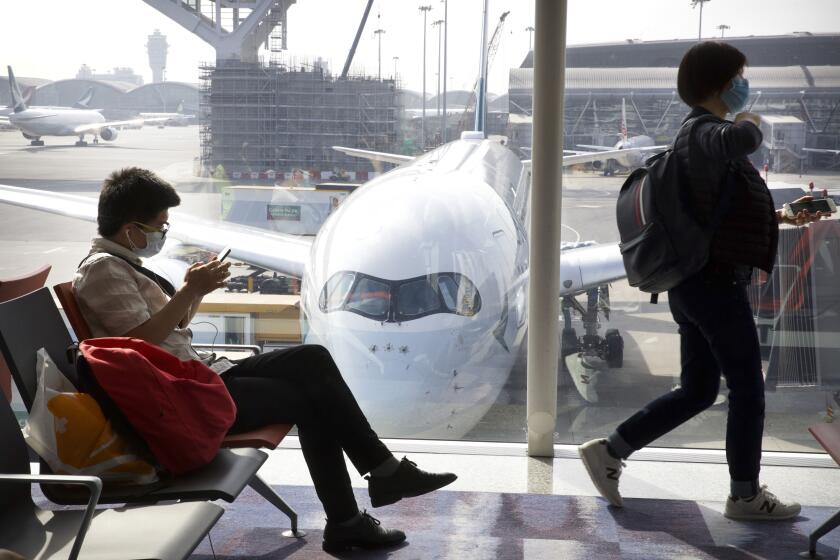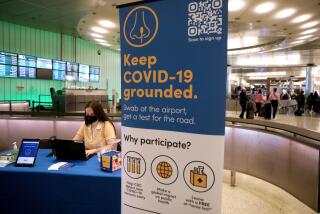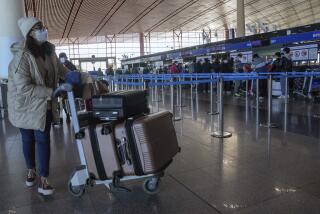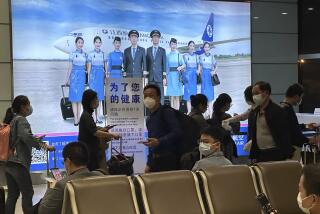Everything you need to know as the China coronavirus spreads
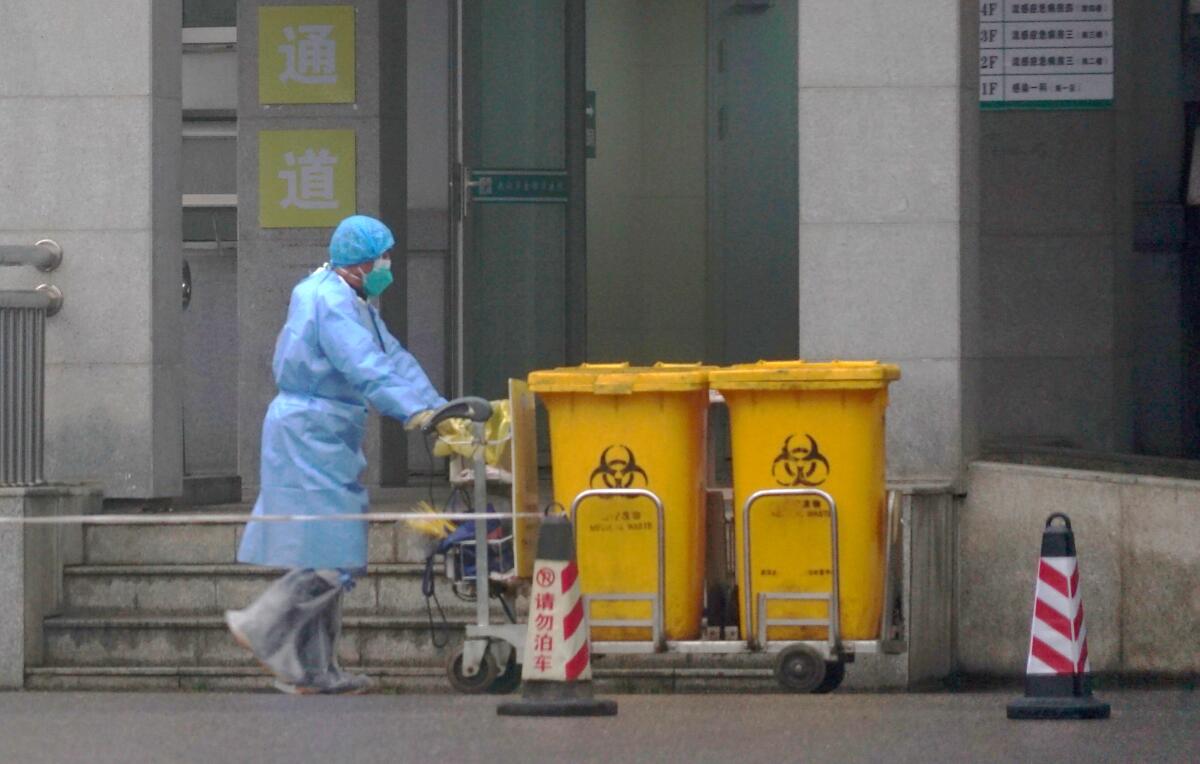
The coronavirus that was first detected last month in China continues to spread, killing at least 17 people and sickening hundreds more. Patients have turned up in Taiwan, Thailand, Japan and even the United States.
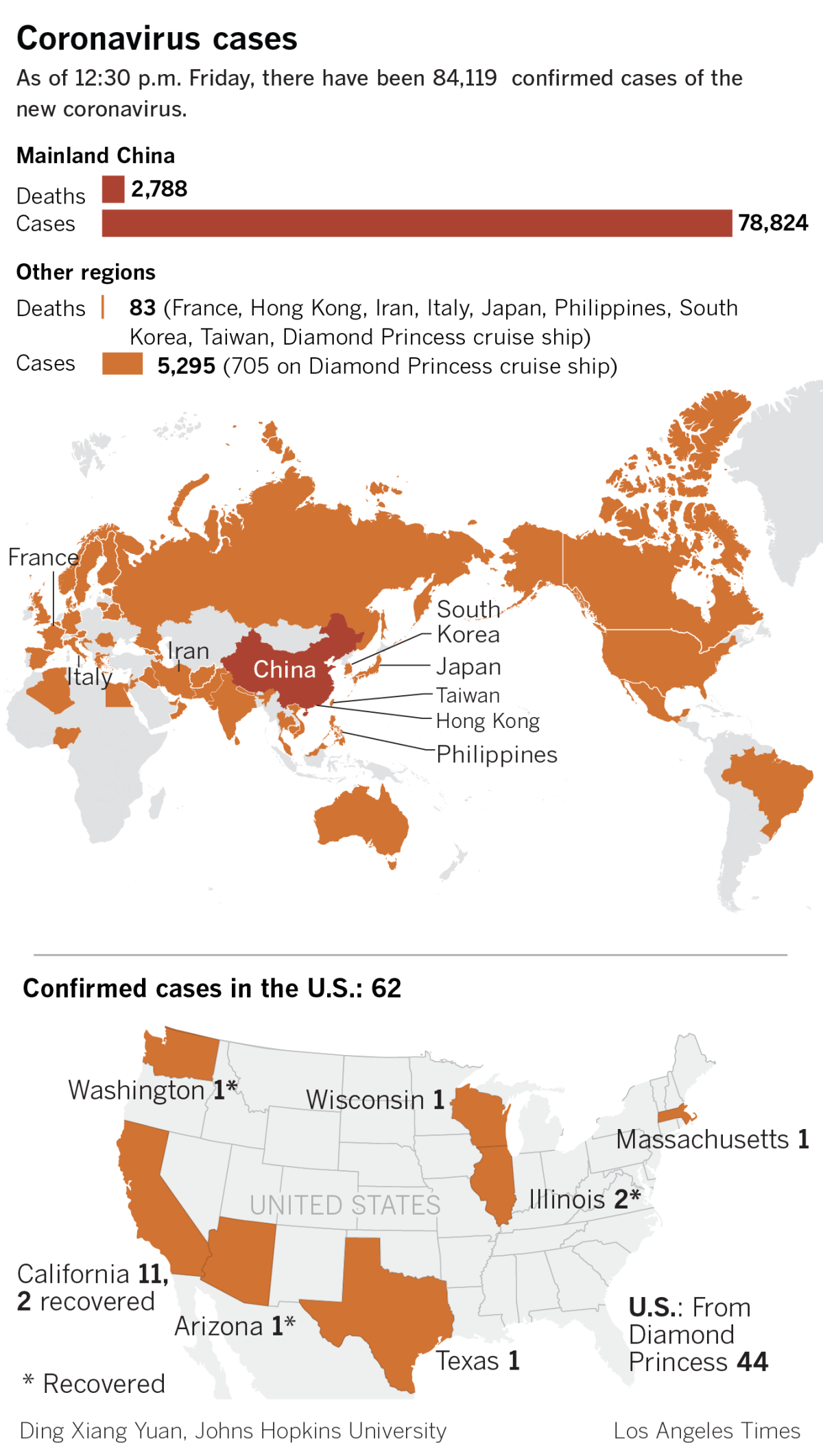
So far, there has not been any sign that it is circulating widely in North America.
Officials with the World Health Organization said Thursday that the outbreak did not rise to the level of “a global health emergency.” But Tedros Adhanom Ghebreyesus, the WHO’s director-general, warned that “it may yet become become one.”
So how big is the threat here? Here’s a look at what we know, and what experts are trying to figure out.
What is this virus?
It’s a new type of coronavirus that scientists have not seen before.
Coronaviruses circulate in a variety of animals, including humans. Some types can cause common colds. Others have evolved into severe illnesses like severe acute respiratory syndrome (SARS) and Middle East respiratory syndrome (MERS).
The virus at the center of the outbreak in China emerged as a pneumonia-like illness. Most of the people who got sick had a link to a large seafood and live animal market in Wuhan, suggesting that it had jumped from animals to humans, said Dr. Nancy Messonnier, director of the National Center for Immunization and Respiratory Diseases at the Centers for Disease Control and Prevention. The market was closed earlier this month for disinfection.
Officials became more concerned about the outbreak when cases were detected in Thailand and Japan among people who had recently visited Wuhan. Health authorities worldwide are now adopting various strategies, including airport screenings, in an effort to contain the virus’ spread.
“This is a serious situation,” Messonnier said.
Health officials around the world are keeping a close watch on an outbreak of a virus in China. Here’s what you need to know about the coronavirus.
Older adults who are already dealing with other health problems may be at increased risk of becoming severely ill, she said. So far, most of the deaths tied to the coronavirus have been in people who were over 50 with underlying medical issues.
Public health officials worry whenever a new virus arrives because there are no treatments for it and they don’t know how people will react to the illness.
China’s 2003 outbreak of SARS was believed to have originated through animal-to-human transmission in a marketplace like the one in Wuhan. More than 8,000 people around the world became sick, and 774 of them died, according to the CDC.
Nearly 2,500 people worldwide have been sickened with MERS since 2012, and 858 of them have died, according to the World Health Organization.
Outside experts cautioned it will take some time to get answers to basic questions about the new coronavirus, including what animal was the source of this outbreak and what makes some people more susceptible to infection than others.
“Basic epidemiology questions remain unanswered,” said Rebecca Katz, director of the Center for Global Health Science and Security at Georgetown University. “The CDC is the best of the best, and we should have faith in their leadership.”
What do we know about the U.S. connections?
The CDC confirmed Tuesday that a man in Washington state had been infected with the coronavirus involved in the China outbreak. His marked the first confirmed case in the United States.
The patient, a resident of Snohomish County, Wash., who is in his 30s, recently returned to the United States after visiting the region around Wuhan. Once back home, he began to experience pneumonia-like symptoms and notified his doctor about his travel history. Test results for the virus returned positive over the weekend, officials said Tuesday.
The man was taken to Providence Regional Medical Center in Everett for monitoring. Officials said he is in good condition.
A traveler who arrived at Los Angeles International Airport on a flight from Mexico City was taken to a hospital early Thursday for an evaluation.
The unidentified passenger arrived on American Airlines Flight 2546 shortly before 6:40 p.m. Wednesday and was screened by CDC officers at LAX. Based on their recommendation, an ambulance was called shortly after midnight to take the person to a hospital, said Heath Montgomery, an LAX spokesman.
Health officials expect to find more patients with the virus. “We do expect additional cases in the U.S. and globally,” Messonnier said.
At the same time, experts emphasized that the virus poses a low risk to the American public, and that it’s unlikely to spread widely here.
Who is being screened?
The airport screening only applies to people who are flying in from Wuhan.
San Francisco International Airport and John F. Kennedy International Airport in New York are the only two in the country that receive direct flights from Wuhan, officials said.
LAX was selected for screening because a large number of travelers from Wuhan fly into Los Angeles indirectly, said Dr. Martin Cetron, director of the CDC’s division of global migration and quarantine.
After the first U.S. coronavirus patient was identified, the CDC said it would begin monitoring passengers at Chicago’s O’Hare International Airport and Hartsfield-Jackson Atlanta International Airport.
As many as 5,000 people could be screened in the next few weeks, officials said.
Passengers are asked about any respiratory symptoms they’ve experienced, and they have their temperature taken, Cetron said. If they don’t have symptoms that match the new coronavirus, they will not be detained.
Anyone who is found to have worrisome symptoms will be taken to a nearby location — officials would not say where exactly — for further testing. They will be asked more detailed questions and receive further testing for the new virus and for other illnesses that could be causing their symptoms, such as the flu.
The additional testing could take hours, Cetron said. “It’s unlikely they’ll be able to make an immediate connecting flight if they have one,” he added.
January is one of the busiest months for air travel from China to the U.S., Cetron said. The Lunar New Year on Saturday is expected to draw large numbers of Chinese travelers, he said.
The Washington state patient entered the country before airport screenings had begun. But even if he had been screened, he would not have been detected because he did not have any symptoms of infection at the time, experts said.
The Associated Press contributed to this report.
